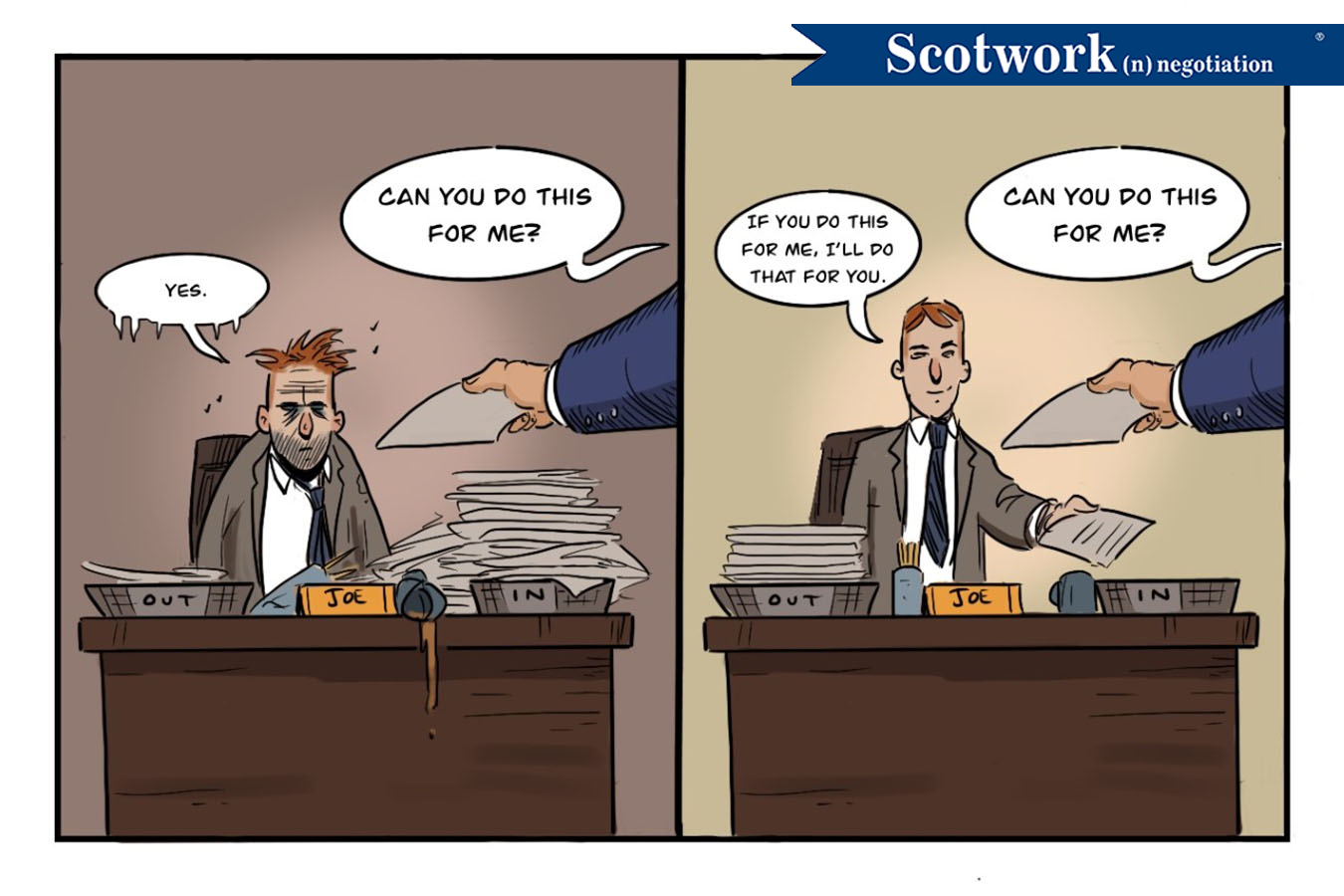Recently, my wife, Sophie, shared a work-related dilemma with me that reminded me of how a perception of fairness, or lack of it, can so often derail negotiations. She had been asked to do something outside the scope of her job, but for which she has expertise. It wasn’t the first time this had happened, and she was concerned that people were exploiting her good nature and general willingness to help.
I wondered if there was a way that would make her feel better about saying yes to their request. She said it would be nice if they could do something for her in return. This seemed like a great idea. “Such as?” I asked. After thinking about it for a few minutes, she reeled off a list of ways they could help her out.
Armed with this list, Sophie went back and agreed to their request on the condition that they would help push through a project that was really important to her but had hit a bottleneck. She discovered it wasn’t a big ask for them — it simply required them to give the matter higher priority on their end, and they had the authority to bump it to the top of the queue. Still, it represented a big win for Sophie, and was well worth the expertise and effort she provided as her part of the deal.
Of course, the world would be a miserable place if we always expected something in return for a good deed. Sometimes we’re happy just to assist. However, simply saying yes when we’d really rather say no leads to resentment. That approach also ensures that those requests will keep coming.
When you start to feel as if you’re getting besieged by requests, think of the opportunities. Here are some things you can do to prepare for a mutually beneficial conversation . . .
- Make a list of what you want. Write a short sentence for each of your desired requests. This will help you to clearly convey what they can offer you. Put another way, if you don’t tell them, they’ll never know.
- Be positive. Asking for something you want — and giving people what they want in return — is a great way to build relationships. Don’t be afraid to trade.
- Look for a win-win. The best deals are ones that both parties are willing to put into play — not ones in which a party gains value at the expense of another.
Taking these steps to guide a conversation really worked for Sophie, and it reminded me of the benefits of trading, which allows us to say yes and feel good about it. They get what they want, we get something we may not have otherwise gotten, and we manage their expectations. From that point on, they know that if they ask us for something in the future, it’s likely they’ll need to give something in return.
So, the next time you’re asked to give something without getting something in return, take time to think about what you’ll need. If they can agree to it, everyone wins. If not, then you’ve still set the right precedent for future engagements.
We Can Help Your Team Prepare for Mutually Beneficial Conversations.
Are your negotiators frequently asked by the other party for something outside the scope of a deal? If so, are they prepared to ask for something in return? The perception of fairness, or lack of it, can derail negotiations. We can help! Drawing on nearly 50 years of real-world negotiating experience, we’ll assist you with getting better deals, saving time, and creating value for all involved — not to mention preserving and even strengthening relationships. Let us partner you with one of our advisers, ensuring that you’ve got the broadest view of your deal.

